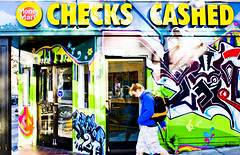This past week I had the pleasure of hanging with my friend Nicholas Montgomery at a conference here in Toronto. While there we had the opportunity to chat about Google’s new “search plus your world” product. Since then, Nicholas has blogged about this upcoming release. It’s such a great read that I asked Nicholas if I could reproduce his article. He agreed.
Enjoy the read and please leave your comments below.
Nicholas Montgomery is the Technology Expert for The Marilyn Denis Show (CTV) and an intern at Sprouter. You can follow him on Twitter, like his Facebook page or read his blog.
At the Socalize Toronto Conference yesterday several hundred people gathered to talk about social media. Pretty much everything social media was discussed: Facebook ad targeting, Twitter chats, 3D virtual worlds, Google+ and more. I learnt a lot about Facebook marketing and how to measure traction. But there was one very, very important game changing social media aspect which almost everyone I talked to was completely unaware of. This is important game changer for social media is Google’s “Search Plus Your World” search update.
It will have a major impact on the dimensions of all searching on the web.
If you have not heard about “Search Plus Your World” and you’re involved in anything on web from blogging to startups to marketing, you need to read this and know it inside and out now. The early adopters are going to reap the greatest rewards.
Continue reading How Google’s “Search Plus Your World” Update Changes Social Media (guest post)




 been starting web companies left, right, and centre:
been starting web companies left, right, and centre: 
